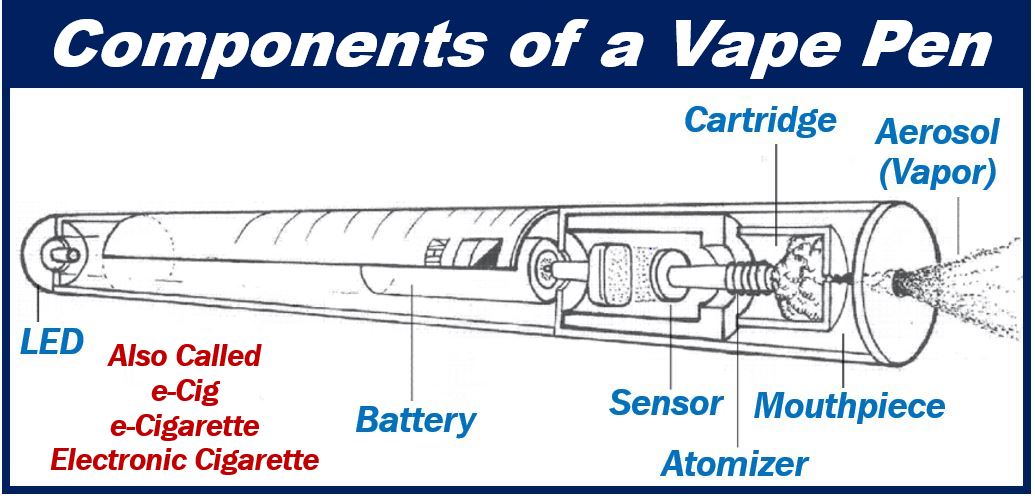A new study by researchers from the Yale School of Public Health and the University of Missouri found that state restrictions on flavored e-cigs helped reduce vaping. However, the legislation also led to an increase in traditional tobacco cigarette smoking.
E-cigs and vaping

E-cigs, e-cigarettes, or electronic cigarettes have become increasingly popular as an alternative to tobacco products in recent years. They are also called ‘vape pens.’
When people use an e-cig, they are ‘vaping‘ – the verb is ‘to vape.’ Vaping involves inhaling and exhaling the vapor produced by an e-cig or similar device. In most cases, e-cigs contain nicotine, which is addictive. However, studies have shown that traditional cigarette smoking is much more harmful than vaping.
Flavored vape bans
Although vaping has helped cut down traditional cigarette smoking rates, it has also become increasingly popular among young adults and teenagers. In an effort to reduce teen vaping, some US states have implemented restrictions on e-cig flavors. They have also imposed greater taxes on vaping products.
Abigail S. Friedman, PhD, and Travis R. Whitacre, PhD, from the Yale School of Public Health, and Michael F. Pesko, PhD, from the Department of Economics, University of Missouri, carried out a study on the effects of flavored vape bans. They also wrote about their findings in the peer-reviewed journal JAMA Health Forum (citation below).
Their study revealed that public health policies, though well-intended, may lead to unexpected consequences.
Prof. Michael Pesko said:
“We should always be cognizant that any policy will have unintended effects, especially in the public health space. In this case, our study finds flavored e-cigarette restrictions have the unintended effect of sizably increasing cigarette use.”
“This is not good from a public health perspective because cigarettes are far more dangerous products. It’s the equivalent of steering a ship away from a storm straight into a whirlpool.”
Prof. Pesko emphasized that an effective and realistic policy should aim to minimize tobacco-related illnesses and fatalities.
Prof. Pesko added:
“One important component to achieving that is to enact policies that shift away from the most harmful tobacco products to less harmful alternatives. E-cigarette flavor restrictions have the opposite effect of pushing many people towards more harmful tobacco.”
No flavored vape ban in Maryland
In his research, Prof. Pesko discovered that in Maryland, where menthol-flavored e-cigarettes were allowed while other flavors were banned, both vaping and smoking rates went down. This suggests that a more flexible and carefully designed policy might be a better approach to addressing public health issues.
In 2010, when e-cigs started becoming popular, Prof. Pesko worked at the CDC (Centers for Disease Control and Prevention). When learning about the vaping trend, he became interested in researching its impact, which later became a key focus of his work.
Citation
Friedman, A. S., Pesko, M. F., & Whitacre, T. R. (2024). Flavored e-cigarette sales restrictions and young adult tobacco use. JAMA Health Forum, 5(12), e244594.
https://doi.org/10.1001/jamahealthforum.2024.4594
